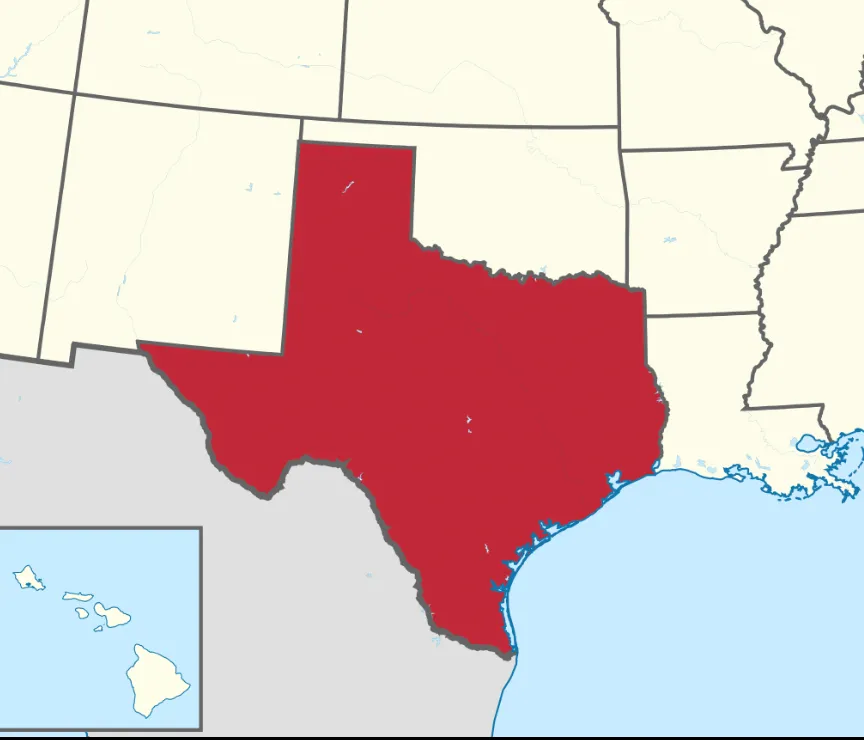Texit? -Considering the 2023 Texas Secession Referendum
by Alexander Moss –July 20, 2022
“It’s been very hard to write lately, mostly because the news is already relentless negative.1 There is very little solace to be found in the January 6th commission findings, the war in Ukraine, the heat waves, the Supreme Court, or any of countless other seemingly insoluble problems.
In my last newsletter, I pondered the possibility that right-wing forces might coalesce around a states-rights centric model as a way to build a broadly popular mandate. It appears that instead many Republican politicians are doubling-down on pure culture warfare, including discussing taking highly unpopular social policies on issues such as abortion, gay rights, and even interracial marriage national. In the short term, this is forcing Republicans in swing states into defensive positions. All of this in turn has the effect of making a “red wave” mid-term election this year into a nail-biter.2
Despite these highly divisive national issues, it’s highly unlikely that the 2022 elections will result in a sufficient majority in the Senate to allow the Democrats to change the composition of the Supreme Court (either by adding justices or rearranging how the court works)3. This in turn dramatically increases the likelihood that blue states will be confronted with some very hard choices, perhaps as soon as as the next round of SCOTUS opinions next summer.
As an example of a hard choice – what happens when the SCOTUS rules that gay marriage or interracial marriage are no longer legal? Do the governors of California and Washington just go along with this? Or do they declare that they will continue to respect gay marriage? What happens when those marriages are no longer recognized when it comes time to file federal taxes or obtain Social Security benefits? These states will faces a horrendous decision in which two key values – respect for the rule of law and respect for the rights of their citizens are placed on a direct collision course.
The decision by the Supreme Court to effectively throw out precedence is astonishing. We are rapidly entering dark waters, with the aftermath of the Dred Scott v. Sandford case of 1857 as a dangerous warning. The decisions made by the SCOTUS in 1857 led directly to the Civil War four years later. Consider these excerpts from the Wikipedia article on Dred:
In an opinion written by Chief Justice Roger Taney, the Court ruled that people of African descent “are not included, and were not intended to be included, under the word ‘citizens’ in the Constitution, and can therefore claim none of the rights and privileges which that instrument provides for and secures to citizens of the United States”.
Although Taney and several other justices hoped the decision would permanently settle the slavery controversy, which was increasingly dividing the American public, the decision’s effect was the opposite. Taney’s majority opinion suited the slaveholding states, but was intensely decried in all the other states. The decision inflamed the national debate over slavery and deepened the divide that led ultimately to the American Civil War.
It’s hard not to draw parallels between Dred and the recent SCOTUS decisions. With that in mind, I’d like to discuss three documents – the Texas GOP 2022 platform, a press release from California, and a recent research report on political violence and civil war in the United States.
The first is the official platform of the Republican Party of Texas as adopted by the 2022 Republican State Convention. The Texas GOP is, of course, the most significant state Republican party and is a reasonable proxy for the Republican platform nationally given the lack of an official national Republican party platform during the Trump administration.
The entire Texas GOP 2022 platform document is well worth reading,4 but I want to focus on one passage in particular (emphasis mine):
33. State Sovereignty: Pursuant to Article 1, Section 1, of the Texas Constitution, the federal government has impaired our right of local self-government. Therefore, federally mandated legislation that infringes upon the 10th Amendment rights of Texas shall be ignored, opposed, refused, and nullified. Texas retains the right to secede from the United States, and the Texas Legislature should be called upon to pass a referendum consistent thereto.
It is widely expected that this referendum will be presented to voters in 2023. As the Texas GOP platform states that the state legislature will require a 2023 general election referendum, and that the same Republican party controls the state legislature, it reasonably follows that the referendum will be presented to the people in due course.
The second key document of interest is this joint press release issued in June in response to the end of Roe v. Wade. From the lead:
The governors of California, Oregon and Washington today issued a Multi-State Commitment to defend access to reproductive health care, including abortion and contraceptives, and committed to protecting patients and doctors against efforts by other states to export their abortion bans to our states.
This announcement is one in a string of examples of states bonding together in the face of federal action over the last few years. The last such announcement by those three states, dating to April 2020, was in regards to similar alliance regarding COVID-19. The April 2020 announcement (and similar announcements from other state coalitions) was one of the primary inspirations for A More Perfect Union.
The last document is a frankly terrifying research report covering social trends in the United States5. In addition to a truly depressing number of people articulating an endorsement for a political violence (both personally and in general), this quote is stunning:
Half (50.1%) agreed that ″in the next few years, there will be civil war in the United States.″
It’s no wonder that the mood of the nation is so pessimistic. If half the country is walking around expecting civil war, at what point does this become a self-fulfilling prophecy? It’s very difficult to plan for the future if you expect everything to fall apart in a few years.6
Despite this grim statistic, I personally remain doubtful that there will be civil war for several reasons, many of which are outlined in A More Perfect Union. Fundamentally, a civil war is a means to an end. While there are clearly some who would choose violence as a preference regardless of purpose (as shown in the survey), traditional large scale mobilizations require a goal7.
“War is merely the continuation of politics by other means.” —Carl von Clausewitz
In other words, before anyone would organize a people for war (as opposed to unfocused, generalized violence), it needs to have a point. And the only rallying point that I can come up with for a civil war that comes along with organized, large scale forces is denied state-level secession.
Which is why I doubt there will be a war – I think few would advocate to fight a civil war to keep Texas in the union. While the notion that the Texas state constitution allows Texas to unilaterally secede is suspect, I suspect that a constitutional amendment to allow Texas to secede along lines similar to those of A More Perfect Union would pass nationally.
Imagine if the Texas referendum in 2023 wins. Just like the Brexit referendum, in an instant every politician in Texas would be forced to reckon with the results. Those that flirt with the idea would have to take a concrete position. Just like Brexit, I doubt that the genie could be stuffed back in the bottle.
If, say, DeSantis wins the Presidency in 2024, perhaps with the aid of a murky SCOTUS similar to Bush v. Gore, I suspect that a California referendum will likely be introduced shortly thereafter. Especially after several years of SCOTUS rulings.
Perhaps there is another resolution out there. Perhaps a new party or candidate will materialize that will galvanize the nation and bring us together. Or perhaps, out of exhaustion and frustration, one or more of these referendums will pass, and suddenly the national dialog will change.
Interesting times indeed.
All the best, and stay safe out there.
1
If, for some reason, you need more political news documenting our collective woes, check out Political Wire and Heather Cox Richardson.2
To track the races, I highly recommend the Cook Political Report. As of this writing, the congressional races in 2024 are extremely tight. In particular, the House report shows the vast number of Democratic toss ups. The Senate report has an even more narrow collection of toss ups, with only five highly competitive seats.3
I would estimate that this would require at least a 52 seat Senate Democrat majority in order to account for the public positions taken by Manchin and Sinema. While not impossible, it would require the Democrats to keep all three of the seats currently rated as toss up and also win both of the Republican toss up seats as rated by the Cook Report. It’s widely reported that many other Democrat Senators are privately opposed to court changes but have been willing to let Manchin and Sinema take the public heat. It’s hard to imagine the interparty rage if the Democrats managed to win all five races and a vote to reform the court still failed.4
As of this writing, the site was down, so you might need to grab the PDF from archive.org.5
As a side-note, my alma matter, UCDavis, reviewed and approved the project. Go Aggies!6
I suspect this account in part for Biden’s poor polling performance. It’s hard to connect anything Biden has done to addressing such an existential issue in a meaningful way. More distressingly, it’s not clear what Biden (or any other president in his situation) even could do.7
The war in Ukraine is an interesting example of how the goals affect outcomes. I suspect that the general enthusiasm for “recreating the Soviet Union” is much lower in Russia than the goal of “saving your home and family from invaders” for the typical Ukrainian citizen.”


